Introduction
Over time, it has become clear that many with liberal beliefs, including communists, often misunderstand fascism. They rely on authors like Umberto Eco and Robert Paxton, whose works are too imprecise and could mistakenly categorize even liberals like Joe Biden as a fascist. Communists such as Michael Parenti and R. Palme Dutt have falsely equated fascism with brutal bourgeois violence and contradiction, while incorrectly depicting it as a tool to sustain failing capitalism. Yet, when one engages with credible research and analysis, it's evident that these interpretations fall short. The reality of fascism is far more complex and nuanced. Objective study reveals little evidence for these widespread assertions. Moreover, those who self-identify as fascists or National Socialist often show a limited understanding of their own doctrine's history, philosophy, and economics, echoing liberal misconceptions of a system they associate with a racist national capitalism. To address these gaps, I have assembled a selection of scholarly works to foster a deeper understanding of the Third Position, to discourage the misuse of terms like "fascist" and "Nazi" as mere insults, and to educate those who claim to support fascism, helping them move beyond reactionary stances. It is with these goals in mind that I offer you this reading list, hoping it will be both informative and enjoyable.
The Books
Zeev Sternhell - The Birth of Fascist Ideology: From Cultural Rebellion to Political Revolution
The Birth of Fascist Ideology is a highly recommended book for those interested in exploring the origins and complexities of Fascism. Sternhell posits that Fascism is not just a chapter in Italian history but a full-fledged ideology that is deeply embedded in European thought. He argues that Fascism is a synthesis of extremes, pulling from both the political right and left. It didn't merely emerge as a response to World War I but gradually evolved over time, intertwining with contemporary intellectual movements. Fascism stood in opposition to the Enlightenment, liberal democracy, and Marxist materialism, forming a unique ideology with its own convictions and values. Sternhell's work offers a comprehensive look into the intricate evolution and ideology of Fascism.
Zeev Sternhell - Neither Right nor Left: Fascist Ideology in France
This insightful book argues that fascism was not just an aberration of the German and Italian political scenes, but a significant element of European history that permeated French culture as well. Tracing its roots back to France in the eighteenth century, the book demonstrates how fascism was a melting pot of ideas, including anti-communism, anti-liberalism, nationalism, and revolutionary syndicalism, all uniting in the quest for radical societal change—a "Third Way." The movements' thinkers often came from two camps: the radical right, rejecting many facets of industrial society and liberal democracy, and the radical left, whose disenchantment led them towards nationalism, thereby feeding into the fascist narrative.
Stephen B. Whitaker - The Anarchist-individualist Origins of Italian Fascism
This compelling collective biography uncovers the anarchist roots of Italian Fascism through the intricate lives of four protagonists who were marked by pronounced individualism. Leandro Arpinati, starting his political journey as an anarchist, ascended within the Fascist ranks to become a key leader in Bologna and Mussolini's Minister of the Interior, even being dubbed the Second Duce of Fascism. Massimo Rocca, an ardent anarchist-individualist, was instrumental in swaying Mussolini to advocate for Italy’s intervention in World War I. Maria Rygier, a well-known anarchist in Bologna, adapted leftist revolutionary thought to resonate with right-wing ideology. Meanwhile, Torquato Nanni was pivotal in blending the socialist-left elements of Fascism with the radical-right aspects of Bolshevism. These figures, once close to a young Mussolini, were among the earliest to become disenchanted with Fascism. Their narratives offer a deep dive into the intricate beginnings of Italian Fascism and its entanglement with anarchist movements.
Mark Antliff - Avant-Garde Fascism
Mark Antliff investigates how fascists wove the avant-garde movement into their mythic narratives. Between 1909 and 1939, he was surprised to find a number of modernists involved, including the symbolist painter Maurice Denis, architects like Le Corbusier and Auguste Perret, sculptors Charles Despiau and Aristide Maillol, the "New Vision" photographer Germaine Krull, and fauvist Maurice Vlaminck. Antliff zeroes in on three French fascists—Georges Valois, Philippe Lamour, and Thierry Maulnier—and their exploitation of avant-garde aesthetics, including movements like cubism, futurism, and surrealism, as well as the "Retour à l'Ordre." He even discusses their connection of fascist dynamism to Sergei Eisenstein's montage theory. Antliff maintains that these fascists harnessed modern art as a mythical forerunner to a revolution that aimed to dismantle the old regime, usher in an anti-capitalist new world, and unlock the artistic and creative spirit of the fascist "new man."
Jeffrey Herf - Reactionary Modernism: Technology, Culture, and Politics in Weimar and the Third Reich
Jeffrey Herf investigates the complex contradiction where German fascists dismissed the Enlightenment's rationalism yet eagerly adopted modern technology. In his thorough research, he identifies a 'reactionary modernism' within German engineering circles and among the Weimar Republic's right-wing intellectuals. Herf studies figures like Ernst Jünger, Oswald Spengler, Werner Sombart, Hans Freyer, Carl Schmitt, and Martin Heidegger, showcasing their roles in crafting what Joseph Goebbels, the Nazi propaganda chief, famously called the "steel-like romanticism of the twentieth century." These intellectuals linked technology to German heritage, preferred aesthetic cohesion to utilitarian design, and championed state power over capitalist interests, striving to merge Germany's technological prowess with its romantic tradition and national spirit.
Roger Griffin - Fascism
Roger Griffin's work on fascism tackles the intricate task of defining and comprehending this multifaceted ideology. Leveraging his extensive scholarly background, Griffin presents an approachable overview of his analytical framework, making it a valuable tool for those looking to gain a deeper understanding. His book curates a wide array of writings from fascist ideologues, their propagandists, and their opponents, shedding light on the fascist movements in Germany, Italy, and beyond. Griffin probes into the allure of fascism for certain demographics, scrutinizes the varied responses to it, and looks at its legacy and current forms. The narrative is enriched with perspectives from figures like Mussolini, Levi, Goebbels, Orwell, Heidegger, and Horkheimer.
Roger Griffin - Fascism As a Totalitarian Movement
This important collection features a set of in-depth case studies by renowned international scholars, designed to enhance our understanding of the complexities of fascism. The book scrutinizes two interwar fascist governments, two failed European movements, and two post-war far-right movements in America, revealing the ties between fascism, political religion, and totalitarianism. These case studies offer a treasure trove of research that challenges and refines our perception of totalitarian movements and the wider construct of fascism. The detailed analysis investigates the specific connections among various totalitarian groups and regimes, illuminating the real historical events they engendered. Utilizing advanced and radical theories on fascism, totalitarianism, and political religion, this volume significantly enriches our nuanced grasp of these intricate and influential phenomena.
Roger Griffin - The Nature of Fascism
Roger Griffin identifies the core impulse of fascism as a unique utopian myth centered on the rebirth of a national community, envisioned to emerge triumphantly from the decay of a degenerate society. He reveals the fundamental connection that aligns fascism with not only Nazism but also the plethora of fascist groups that emerged across Europe and beyond during the interwar period. Furthermore, Griffin tracks the relentless spread of aggressive fascist activity that has continued since the end of World War II.
Roger Griffin - A Fascist Century
Roger Griffin presents a series of ten essays that provide an in-depth look at fascism, dissecting the ideology, its manifestation across various movements in the twentieth century, and its significance in what Mussolini dubbed the 'fascist century.' This anthology features detailed explorations of fascism's drive for a sweeping revolutionary change over time, a comprehensive case study on Nazism, and a thorough investigation into how fascism has adapted and persisted after the Second World War.
Roger Griffin - Modernism and Fascism: The Sense of a Beginning Under Mussolini and Hitle
Discussions on modernity, modernism, and fascism remain vibrant and highly contested. In this comprehensive work, Griffin, examines Western modernity and the governments of Mussolini and Hitler, presenting an innovative interpretation of the connections between these seemingly disparate phenomena.
Roger Griffin - International Fascism: Theories, Causes and The New Consensus
This book centers on the concept of generic fascism's ideology, compiling a range of articles, essays, and significant political texts to reveal the foundational similarities connecting fascism, Nazism, and various unsuccessful fascist endeavors that emerged in Europe between the wars and beyond. Through his introductory remarks and editorial insights, Griffin identifies the central motive powering all fascist groups as a unique utopian vision, that of a rejuvenated national community, poised to emerge from the ruins of a degenerate society.
A. James Gregor - The Ideology of Fascism: The Rationale of Totalitarianism
In The Ideology of Fascism, A. James Gregor presents a pivotal analysis that contests the Marxist understanding of fascism. Gregor delves deep into the ideological bedrock and objectives of Fascism, framing it as a derivative of "classical Marxism." He explores the socialist roots of Fascism, with a particular focus on how Mussolini's brand of socialism relates to the theories of Marx, Engels, and Lenin. Gregor posits that both Lenin and Mussolini adopted a vanguardist stance towards revolution, advocating for a select party to lead the proletariat. The book sheds light on the ideological pivot from global class unity to national socialism, a shift precipitated by the disintegration of the Second International amidst World War I. Gregor proposes that national ties ultimately overshadowed class allegiances, prompting a reorientation of political objectives. This work offers a critical perspective on the underpinnings of Fascist ideology and draws well-informed parallels and distinctions with Marxism.
A. James Gregor - Young Mussolini and the Intellectual Origins of Fascism
In his academic study, Gregor provides an exhaustive analysis of the intellectual underpinnings of Italian Fascist thought. He also embarks on a detailed exploration of Benito Mussolini's personal development, tracing his journey from early life through the various forces that molded his ideology, leading up to his emergence as a dynamic leader. Gregor puts forth the idea that Fascism represents a unique interpretation of classical Marxism, thereby disputing the common classification of Fascism as an exclusively right-wing extremist phenomenon.
A. James Gregor - The Faces of Janus
In his stimulating work, A. James Gregor questions the traditional categorization of Fascist governments as right-wing and Marxist-Leninist governments as left-wing. He suggests that this binary framework has obstructed a clear understanding of the revolutionary movements of the 20th century. Gregor advances the intriguing argument that the progression of Marxist theory from the 1920s through the 1990s in the Soviet Union eventually morphed into a form of Fascism. His analysis delves into the ideological evolutions within Marxism that prompted such a change. By reassessing the connections between Marxism and Fascism, Gregor introduces a new viewpoint on the intricate and often entangled nature of revolutionary ideologies during a pivotal era in history.
A. James Gregor - Marxism, Fascism, and Totalitarianism: Chapters in the Intellectual History of Radicalism
This extensive study delves into the posthumous development of classical Marxism, originally crafted by Karl Marx and Friedrich Engels. It outlines the rise of distinct strains of Marxism as the twentieth century began, each leaving a deep imprint on various political ideologies and movements. For instance, one such strain deeply affected Adolf Hitler's adherents, while another molded Benito Mussolini's Fascist doctrine. Elsewhere, a different strain underpinned the doctrines of Lenin's Bolshevism and Stalin's approach to communism. By mapping these ideological evolutions, the book illuminates the varied trajectories Marxism embarked upon, ultimately exerting a profound influence on key political ideologies and movements of the era.
A. James Gregor - Italian Fascism and Developmental Dictatorship
A. James Gregor confronts the widespread misunderstandings surrounding Italian Fascism, disputing the idea that it is devoid of a meaningful ideological base. He maintains that Fascism bears considerable resemblance to other revolutionary socialist regimes focused on national development. Moreover, he challenges the Marxist assertion that Mussolini's rise to power was facilitated by a conspiracy involving industrialists, financiers, or agrarian capitalists, as well as the major financial bourgeoisie. In debunking these prevalent myths, Gregor provides a new viewpoint on the ideological essence of Italian Fascism and its interactions with different economic and social dynamics.
A. James Gregor - Giovanni Gentile: Philosopher of Fascism
In the book Giovanni Gentile: Philosopher of Fascism, A. James Gregor explores the philosophical contributions of Giovanni Gentile, who is often regarded as the principal intellectual architect of Italian Fascism. Gregor interprets Gentile's philosophy, positing that fascism arose as a counter-democratic movement in reaction to the perceived hegemony of advanced industrial democracies over less-developed societies and nations situated on the fringes of global power. Set against the context of late nineteenth-century Italy—an industrially lagging and newly unified nation—Gregor illustrates how Gentile endowed fascism with a theoretical foundation as a regime aimed at national development and modernization.
Gentile's philosophical framework, known as Actualism or Actual Idealism, synthesized various contemporary intellectual streams, including nationalism, syndicalism, and futurism. It represented a vigorous challenge to what was viewed as the overbearing influence of liberal imperialism. Gregor suggests that Gentile's vision can be seen as an antecedent to the reactions of peripheral nations in the 21st century to the pervasive influence of industrialized democracies amid globalization. He points to regions like post-Maoist China, post-Soviet Russia, Africa, and the Balkans as examples of places in a developmental phase where conditions could be ripe for the emergence of fascist ideologies.
A. James Gregor - National Socialism and Race
This academic text offers a comprehensive analysis of the racial doctrines that the Third Reich enacted, charting their progression throughout the entire span of Nazi rule. The study delves into how Adolf Hitler's early, somewhat nebulous racial views gradually morphed into an intense preoccupation with the concept of Nordicism by the 1930s. This shift occurred autonomously and sometimes in opposition to the beliefs of other Nazi officials. As the 1930s progressed, a supposedly more scientifically grounded approach to race emerged as the official stance of the Nazi leadership. The significance of this essay lies in its ability to debunk and contradict the exaggerated claims and propaganda that some historians have propagated. A. James Gregor methodically deconstructs overblown stories about figures like "Hyperborean Giants" and the myth of a "Nordic Master Race," offering a more precise and subtle portrayal of the Third Reich's racial ideologies and policies.
A. James Gregor - Mussolini’s Intellectuals
In this insightful volume, A. James Gregor takes on the common perception that Italian Fascism was fundamentally more illogical than other 20th-century ideologies. He contends that despite its shortcomings, Fascism's level of rationality was on par with that of its contemporary ideologies. Gregor bolsters his argument by presenting a historical overview of key intellectuals associated with Italian Fascism, charting the progression of their philosophies as they reacted to both domestic and international social and political shifts. Through an exploration of the deeper ideological underpinnings of Fascism, Gregor draws attention to the necessity of recognizing the movement's substantial intellectual undercurrents in addition to its emotive power. This work seeks to illuminate one of the 20th century's pivotal political movements, dispelling simplistic judgements and fostering a more intricate appreciation of Fascism's intellectual aspects.
A. James Gregor - Totalitarianism and Political Religion: An Intellectual History
In this perceptive book, A. James Gregor presents a unique viewpoint on the major ideologies that shaped the recent historical landscape, including Marxism, Fascism, and National Socialism. He delves into the genesis of totalitarianism, tracing its ideological foundations to the nineteenth century. Gregor posits that these belief systems all aimed to exert comprehensive control over every facet of public and private life, including education, communication, and commerce. He suggests that these ideologies, in their pursuit of dominance, evolved into totalitarian entities resembling political religions. Through Gregor's analysis, readers gain a deeper understanding of how these ideologies developed and their overarching goal of establishing omnipresent authority, transforming into holistic systems of faith and governance.
A. James Gregor - The Search for Neofascism: The Use and Abuse of Social Science
This book fulfills two important roles: it educates its audience and delivers a word of caution. The author critiques the reckless application of labels such as "fascism," "generic fascism," and "neo-fascism," noting that these terms are frequently misused to disparage right-wing political groups and regimes, rather than to clarify their nature. Such imprecise usage has muddled the true understanding of fascism. Furthermore, the author disputes the mischaracterization of certain post-World War II political entities, including Italy's Alleanza Nazionale and India's Bharatiya Janata Party, as fascist. The erroneous branding of these organizations as neo-fascist carries potential repercussions for global diplomatic relations.
Emilio Gentile - The Origins of Fascist Ideology 1918-1925
Emilio Gentile's significant work addresses a critical gap in our understanding of the origins and development of one of the most impactful political ideologies of the 20th century: Fascism. His detailed and comprehensive analysis presents a definitive account of the rise and initial success of Italian Fascism following the First World War. With expert precision, Gentile maps out the diverse factors that contributed to the formation of this influential movement, offering a complete picture of its deep-seated effects on Europe and the enduring influence of Mussolini's disciples on the global stage for years to follow.
Emilio Gentile - The Sacralization of Politics in Fascist Italy
Emilio Gentile, delivers an innovative examination of the ideology, characterizing it as the original and archetypal example of a modern political religion. Exploring the use of symbols, rituals, cults, and mythology, Gentile sheds new light on Italian nationalism, portraying it as an extreme version of a civic religion. He also underscores the crucial influence of Italian Fascism in shaping the nature of modern mass politics. Moving beyond the usual focus on political, social, or leadership-driven factors, Gentile reveals the cultural foundations of Italy's Fascist era, offering a rich and nuanced perspective that goes beyond the standard historical narratives.
Emilio Gentile - The Struggle for Modernity: Nationalism, Futurism, and Fascism
The nexus between nationalism and modernity is key to understanding the evolution of Italian radical nationalism, from the modernist avant-garde movements to the Fascist regime. Emilio Gentile conducts an in-depth investigation of the ideological streams and cultural stories that link these seemingly disparate groups. Mapping out the progression of Italian nationalism from its origins in the risorgimento through to its neo-fascist descendants, Gentile dissects the complex interplay between myth-making and organizational structure in the establishment of the Fascist government. He probes into subjects such as the significance of the political party, the influence of mass politics on Italian society, the international endeavors of Fascist groups, and the Fascist regime's cultural perceptions of the United States.
Stanley G. Payne - A History of Fascism 1914-1945
Stanley G. Payne's A History of Fascism: 1914-1945 stands as a comprehensive examination of fascism, potentially serving as the definitive book on the subject. Payne offers a detailed examination of the historical trajectory of fascism, adopting a nation-by-nation approach that spans from 1914 to 1945 and encompasses countries across Europe, South America, and Asia. At the outset of his research, Payne tackles the complex task of defining fascism, acknowledging the diverse array of principles it incorporated, yet pinpointing a philosophical essence at its heart. He singles out ultra-nationalism as a central pillar of fascist ideology, emphasizing its connection to a deep-seated desire for national revitalization or resurgence. This fundamental premise paves the way for Payne's in-depth investigation into the many faces of fascism during a crucial era of global history.
Stanley G. Payne - Fascism, Comparison and Definition
In this work, Stanley G. Payne delivers a clear and engaging analysis of what defines fascism. He contrasts ideologies like Marxism or liberalism, which aspire to be universal, with fascism's deep entanglement in a specific nation's cultural fabric. As a result, each instance of fascism is uniquely shaped by the country it emerges in. Payne meticulously explores the distinct characteristics that set apart various fascist movements, offering an extensive overview of the ideology's different guises worldwide. His examination deepens our grasp of the term "generic fascism," illuminating its complex variations and dispelling any associated myths or misunderstandings.
Anthony J Joes - Fascism In The Contemporary World: Ideology, Evolution, Resurgence
The birth of specialized fascist studies in the 1960s heralded a new era in the scholarly grasp of fascism. Initially, this burgeoning discipline contended with a variety of Marxist readings of fascism, which have largely lost their scholarly standing but continue to be advocated by figures such as Jason Stanley. Anthony's seminal work, Fascism in the Contemporary World: Ideology, Evolution, and Resurgence, published in 1979, effectively refuted these Marxist perspectives. The book provides a clear and concise recapitulation of the principal interpretations of fascism up to the year 1978, and its insights remain pertinent in modern discourse. Anthony posits that proto-fascist regimes can emerge in Third World nations struggling with ineffective governance, the consequences of military defeat, national shame, and economic malaise. This perceptive exploration illuminates the manifestation and attributes of fascist tendencies in various settings, making a significant contribution to the understanding of fascism's enduring significance in today's global landscape.
Renzo De Felice - Interpretations of Fascism
In this book, the author develops a classification system that distinguishes between the different manifestations of power exercised by generic fascism. Furthermore, the text explores how authors from the 1920s to the present have perceived and interpreted fascism. The author contends that Mussolini, the figurehead of Italian fascism, demonstrated qualities of an innovative reformer in domestic politics, yet displayed a pragmatic style in his foreign policy initiatives.
Renzo De Felice - Fascism: An Informal Introduction to Its Theory and Practice
Contemporary political debates among Italian thinkers frequently make use of the labels "fascist" and "anti-fascist." Yet, this book distinguishes itself through the author's profound knowledge of fascism and a thorough historical examination. De Felice's scholarship includes in-depth empirical studies on Mussolini's tenure and the Fascist regime in Italy, alongside an analysis of fascism's definition and fundamental traits. The integration of detailed empirical investigation with an overarching theoretical perspective offers important perspectives on the intricate essence of Fascism and its place in history.
Erik Norling - Revolutionary Fascism
Erik Norling's book is a collection of five essays that examine the socialist and revolutionary aspects of Italian Fascism. Referencing the work of academics such as A. James Gregor and Zeev Sternhell, Norling emphasizes Fascism's syndicalist roots, framing it as an ideology steeped in revolutionary socialism. A distinctive feature of Norling's argument is his assertion that elements of revolutionary socialism persisted, in varying extents, throughout the lifespan of Italian Fascism. His detailed scrutiny offers fresh insights into the dynamic character of Fascism, uncovering its persistent socialist foundations.
Richard Tedor - Hitler’s Revolution
This innovative book reexamines the oversimplified stories that have traditionally framed perceptions of Hitler and his administration. Moving away from the conventional image of Hitler as a one-dimensional villain, the book presents a more complex and discerning view. Concentrating on Hitler's internal policies, the narrative explores the detailed planning, underlying motives, and objectives that defined his governance. Notably, it broadens the scope beyond the Holocaust, acknowledging the multitude of factors at play during this period. The book also steers clear of the commonplace moral evaluations prevalent in Western historical narratives, striving to offer a balanced and holistic examination instead.
Rainer Zitelmann - Hitler's National Socialism
In this detailed study, the author reevaluates the ideological beliefs and objectives attributed to Hitler, questioning widely held beliefs. Through a close examination of Hitler's ideological beliefs, the book uncovers a deeper engagement with anti-capitalist sentiment within his vision of National Socialism than is commonly recognized. Zitelmann's research indicates that over time, Hitler's opposition to capitalism intensified, leading him to express admiration for Stalin's centrally planned economy in the Soviet Union. This finding contradicts Marxist interpretations, as Zitelmann's evidence suggests that Hitler sought to create a distinct version of socialism, infused with racial ideology and marked by absolute state control of the economy. This view challenges the long-standing idea that Hitler was simply an instrument of German industrial elites, providing a new angle on the intricate nature of Hitler's ideology and ambitions.
Dennis J. Sweeney - Work, Race, and the Emergence of Radical Right Corporatism in Imperial Germany
The author makes a persuasive case for how scientific racism arose alongside a new brand of corporatism that incorporated biopolitical elements into the German industrial landscape. This study is particularly pertinent for researchers and learners delving into subjects like workforce dynamics, the structuring of industries, ideological frameworks, political ethos, and the roots of Nazism. The results show an intersection of these themes, intertwining within a corporatist societal model. The book provides insightful analysis into the intricate relationships among ideological beliefs, political practices, and the socio-economic fabric of the Nazi regime.
Martin Goldberg - Socialism of The Right
Socialism of The Right provides a concise analysis of the various factions that shape the ideology of fascism. The book investigates the driving forces behind these groups' activism and their quest for political transformation, offering key perspectives on the complexity of fascist ideology. Utilizing a wide array of original documents and academic research, the author presents a thorough and insightful study of fascism. The book's detailed research and thoughtful examination deliver a sophisticated comprehension of the topic, making it a vital tool for those wishing to engage with the intricate nature of fascism.
Martin Goldberg - The Truth About Mussolini and Fascism
Amidst the more widely discussed German Nazism, Benito Mussolini's Fascism is frequently overshadowed and simplified into blunt stereotypes of brutality, malevolence, belligerence, and pandering to capitalist interests at the detriment of workers. This publication, however, reevaluates such caricatures by investigating the realities of Italy before the war and Mussolini's endeavors during this time. Utilizing insights from American scholars and firsthand Italian materials, Goldberg crafts an enlightening narrative that highlights Mussolini's pursuit of peace, the Fascist regime's backing of organized labor, and the leader's dedicated fight against slavery in Africa. The book also provides an in-depth look at the Italian Social Republic, an entity often neglected in English-language scholarship, rendering this work an essential resource for a more comprehensive grasp of Italian Fascism.
Eugen Weber - Varieties of Fascism: Doctrines of Revolution in The Twentieth Century
This book commences with an exhaustive examination of fascist ideologies before offering succinct summaries of various fascist groups that emerged in Europe between the World Wars. The author, Weber, addresses figures like Oswald Mosley in Britain, Mauras and his contemporaries in France, Degrelle and the Belgian Rexists, Szalasi and Hungary's Arrow Cross Party, Hitler's National Socialist movement in Germany, and Mussolini's Fascists in Italy. He meticulously analyzes the commonalities and distinctions among these movements, probing into the defining traits of fascism and their significance to the ideology as a whole. Weber evaluates how successfully these movements realized their objectives and the influence their strategies had on their achievements. Notably, he bravely tackles the controversial topic of fascism's pragmatic socialism and its profound opposition to capitalism. By asserting that fascism weaves together elements of socialism and nationalism, with origins traceable to the French Revolution, Weber confronts entrenched misconceptions about fascist ideology. Ultimately, the book stands as an important tool for rectifying misunderstandings about fascism.
António Costa Pinto and A. Kallis Springer - Rethinking Fascism and Dictatorship in Europe
This book underscores the extensive ideological and political influence of fascism, which transcended European boundaries and reached global proportions. It posits that regimes under fascist control shared a conviction in fascism's capacity to revolutionize society, fostering a vision for a new order that would break away from liberal principles and stand firmly against communism, with a strong emphasis on nationalism. The book aims to deliver a thorough examination of the complex cross-border interactions among dictatorships of the interwar era, both conceptually and through tangible evidence. These interactions included the exchange and evolution of ideas and strategies, reciprocal influences, and strategic adaptations, which often made the lines between "fascist" and "authoritarian" elements within the wider nationalist movements of interwar Europe less clear. By illuminating these intricate connections, the book contributes new perspectives on the diverse character of fascism and its significant role in shaping the political contours of that historical period.
Antonio Costa Pinto - Corporatism and Fascism: The Corporatist Wave in Europe
This book offers an in-depth and comparative examination of the connections between corporatism and dictatorships, integrating these areas of inquiry within a cohesive theoretical structure. It skillfully makes use of the notions of social and political corporatism, diffusion, and critical junctures, tailoring these concepts to scrutinize dictatorships of the Fascist period. With an approach that marries abstract theorizing with concrete case studies, the book enhances our comprehension of corporatism under dictatorial regimes. It explores the interactions among these concepts and sheds light on different historical scenarios, providing a significant and enlightening viewpoint on the topic.
Howard J. Wiarda - Corporatism and Comparative Politics
This book provides an accessible entry point for understanding the ideological nuances of corporatism. The author skillfully clarifies the core features of corporatism, highlighting how it diverges from Marxism and liberalism by positioning itself as an alternative, or "Third Way," political philosophy. Corporatism involves the incorporation of key societal sectors—such as family lineages, ethnic groups, faith-based groups, business interests, or military bodies—into the state's mechanisms, aiming for a harmonious and unified pursuit of national progress. Despite its historical associations with repressive regimes during the early twentieth century, corporatism stands as a unique political framework with its own distinct principles. Grasping the essence of corporatism is essential for anyone looking to understand the inner workings of various modern authoritarian governments, as its principles continue to inform their organizational frameworks and policy decisions.
Nevin Gussack - The Nazi War Against Capitalism
The Nazi War Against Capitalism is a significant and meticulously researched contribution to the ongoing discourse surrounding Nazi economic policies. Nevin provides an in-depth investigation into the intellectual beginnings of the socialist tenets within the Third Reich, charting their development from the "War Socialism" experienced during World War I to the formative ideas of the nascent Nazi movement in Germany. The book thoroughly records the Nazi Party's interference in the private sector, detailing the extent of its economic manipulations. It also examines the reasons behind the support that the Nazis received from capitalists both within Germany and abroad, as well as Berlin's aggressive trade tactics aimed at the United States. Notably, the book highlights the remarkable similarities between the Nazi trade strategies and those encountered in communist nations such as post-Mao China, revealing the calculated involvement of both foreign and domestic financiers in the economic strategies of the Nazi government.
George L. Mosse - The Fascist Revolution: Toward a General Theory of Fascism
In this anthology, George Mosse conducts an insightful exploration of different expressions of European fascism, extending his analysis beyond Germany to include Italian, French, Belgian, and other variants of the ideology. The collection features a series of essays, each investigating a unique facet of fascism and offering a multifaceted perspective. The centerpiece essay is particularly comprehensive, offering a cultural interpretation of these movements by examining their symbols and their crucial role in securing mass appeal. Mosse probes into the ideological seeds planted during the French Revolution, as well as fascism's ties to nationalism, racism, and the way it was harnessed by intellectuals to provoke rebellion. By considering fascism in its own context, the collection facilitates a layered appreciation of the ideology. The edition is further enriched by a thought-provoking introduction from Roger Griffin, which provides additional analysis and frames Mosse's writings, enhancing the reader's engagement with the material.
Henry Ashby Turner Jr - German Big Business and the Rise of Hitler
In this pioneering study, the book delves into the underexplored nexus between major corporations and the funding of Hitler's ascent, challenging the long-held assumption that vital records on this pivotal relationship were lost or obliterated. Contrary to widespread belief, and countering the dominant Marxist interpretation, the author uncovers robust evidence indicating that big business did not back Hitler's political agenda as previously thought. This revelation overturns traditional narratives regarding the emergence of the Nazi regime. By introducing a novel viewpoint on this matter, the book makes a substantial contribution to the discourse on Hitler's climb to power, shedding new light on the intricate interplay between large-scale industry and political upheaval.
Paul Einzig - The Economic Foundations of Fascism
Einzig's book delivers an exhaustive and nuanced analysis of Italy's corporatist economic framework. Striving for objectivity, it utilizes a wealth of factual data to depict a balanced view, while breaking down intricate ideas into digestible explanations. The work is further augmented by the incorporation of primary source materials, translated into English for the reader's benefit, offering direct access to the topic at hand. Such a thorough method deepens the reader's grasp of how corporatism operated within Italy, presenting a comprehensive and enlightening account.
Adrian Lyttelton - The Seizure of Power: Fascism in Italy, 1919-1929
This book delivers an in-depth exploration of Fascism in its birthplace, Italy, examining its significant impact on the nation's governance and societal framework. The author contends that the consolidation of Fascist power extended far beyond the well-documented March on Rome led by Mussolini in 1922, and was in fact a more insidious erosion of the pre-existing liberal framework. This erosion involved a systematic dismantling of all forms of political dissent and the creation of novel structures designed to dominate the economic and cultural spheres of Italian life. Through an investigation of these transformative processes, the book sheds light on the complex character of Italian Fascism and the strategies it employed to secure and maintain control.
Günter Reimann - The Vampire Economy: Doing Business Under Fascism
In this notable work by communist writer Günter Reimann, written in 1939, we find an in-depth dissection of the ways businesses operated under Nazi rule. Reimann meticulously examines the myriad consequences that arose from heavy-handed regulatory measures, price fixing, market interference, centralized economic planning, and the encroachment upon private property rights. His analysis illuminates the significant repercussions these policies had not just on economic advancement but also on the safeguarding of human liberties. Through a critical perspective, Reimann scrutinizes how government intervention intertwined with economic activity, revealing the adverse outcomes of such policies on the fabric of society and its economic health. Conclusively, Reimann makes the provocative assertion that the Third Reich, with its rigorous schemes of management and oversight, could be considered a variant of socialism, potentially exceeding even the Soviet Union in its depth and influence.
Götz Aly - Hitler’s Beneficiaries: Plunder, Racial War, and The Nazi Welfare State
In this pioneering study, renowned historian Götz Aly tackles a complex riddle that has long baffled observers of modern history: the means by which Adolf Hitler won over the hearts of the average German citizen. Aly presents a striking argument, showing that while Jews and those living in occupied territories suffered from severe economic exploitation, such as harsh taxes, rampant pillaging, and outright destruction, the standard of living for most Germans actually saw an increase. Aly posits that Hitler cleverly redirected wealth stripped from these victims to fund extensive social welfare programs, effectively purchasing the compliance and approval of his populace. This insightful examination casts a new light on the nuanced strategies Hitler used to cultivate and maintain the allegiance of the German people, offering a fresh perspective that challenges traditional narratives of the period.
Fausto Pitigliani - The Italian Corporative State
In his thorough examination, Pitigliani offers a deep dive into the Corporative State and the economic principles of Fascism, drawing extensively from original Italian materials. The author skillfully showcases the significant achievements of corporatism as an economic model within Italy. This book emerges as an authoritative guide on the economic practices of Italian Fascism, equipping readers with a comprehensive grasp of the subject. With its diligent scholarship and analytical depth, it becomes an essential source for anyone interested in this facet of Italy's historical and ideological journey.
Rohan Butler - The Roots of National Socialism, 1783-1933
[No purchase link available]
In this detailed exploration, the author investigates the evolution of the German collective psyche between 1783 and 1933, scrutinizing its influence on the emergence of Nazi power. The study conducts a thorough dissection of the underpinnings of Nazi thought, offering a candid evaluation of its roots and progression. Butler underscores the synthesis of diverse German intellectual streams, including Romanticism, Marxism, Existentialism, and pan-German nationalism, all of which crystallized in Adolf Hitler's manifesto, Mein Kampf. Moreover, the author illuminates the insidious absorption of anti-Semitic thought into mainstream German philosophy over time. The work also probes the Nazi reverence for Prussian traditions, particularly their idealization of militaristic culture. Through an examination of these intertwined philosophical strands, the book provides critical insights into the multifaceted ideological forces that paved the way for Nazism's ascent in Germany.
William Welk - Fascist Economic Policy
[No purchase link available]
Welk's interest in Italian Fascism stems from his early experiences, having had the opportunity to observe the rise of the Fascist movement up close during his formative years in one of Italy's key cities. This book is imbued with Welk's firsthand observations, presenting an engaging examination of Italy's corporatist economic system. His direct exposure to the era's events infuses the narrative with a sense of immediacy and credibility, offering readers an authentic glimpse into the functioning of the Fascist economy in Italy through the eyes of an eyewitness.
Armin Mohler and Karlheinz Weissmann - Conservative Revolution in Germany 1918-1932
The Conservative Revolution in Germany 1918-1932 stands as an influential and enduring work, providing a thorough examination of European nationalism, particularly during the pivotal fifteen years in Germany that spanned from the end of World War I to the advent of Nazi power. Mohler, who had firsthand acquaintance with several key figures of the period, meticulously charts the development of German philosophical thought through the ideas of seminal thinkers like Friedrich Nietzsche, Richard Wagner, Oswald Spengler, Thomas Mann, Arthur Moeller van den Bruck, Ernst Jünger, and Carl Schmitt. These thinkers were connected by their rejection of both Marxism and capitalism, and some even actively opposed Hitler and the emerging Nazi regime. The legacy of the Revolutionary Conservative movement significantly influenced German Nazism, Italian Fascism, and various expressions of Third Way ideologies. Understanding this intellectual tradition is essential to fully grasp the intricate and multifaceted nature of fascist ideologies.
Samuel Gregg - The Commercial Society: Foundations and Challenges in a Global Age
This book incorporates insights from a broad spectrum of seminal figures, including Edmund Burke, Adam Smith, Friedrich von Hayek, and Alexis de Tocqueville, who hail from different schools of thought within Western intellectual tradition. Anchoring its examination in this rich diversity, the book delves into the recurring obstacles that have at times impeded, and even threatened, the establishment of a stable commercial society. It scrutinizes the lasting impact of "corporatist" philosophies and political movements that strive towards social egalitarianism. Adopting a historical lens, the book offers an insightful analysis that will be particularly enlightening for contemporary readers with interests in philosophy or economic history.
Franklin Hugh Adler - Italian Industrialists from Liberalism to Fascism: The Political Development of the Industrial Bourgeoisie, 1906-34
In this insightful study, Adler offers a fresh perspective on the rise of Fascism by delving into the relationships between industrialists and Italian liberalism from 1906 to 1934. Moving beyond the conventional focus on the post-World War I period, Adler reexamines the earlier interactions between industrialists and the liberal regime, placing them against the backdrop of the wider liberal crisis and the ensuing shift towards fascism. Utilizing contemporary theoretical frameworks, Adler deftly links the emergence of corporatism to the shortcomings of liberal rule, shedding new light on the intricate relationship between economic interests and political developments of the era. Adler's research also brings to light unexpected findings, such as instances of industrialist support for Communists in efforts to counter the nascent Fascist movement. This challenging analysis upends traditional historical narratives and deepens our comprehension of the complex factors that contributed to the advent of Fascism in Italy.
G. D. H. Cole - Economic Planning in Fascist Italy and in Hitler's Germany
First released in 1937, this pamphlet provides an in-depth analysis of the strategies Fascist Italy and Nazi Germany adopted to achieve national self-sufficiency, which proved effective in reducing unemployment and optimizing the use of available productive assets. The author outlines the effective measures taken by these governments that led to notable decreases in joblessness and enhanced resource efficiency. By focusing on the economic accomplishments of Fascist Italy and Nazi Germany in these areas, the publication offers important perspectives on their economic strategies and their effects on the countries' economies.
Benjamin George Martin - The Nazi-Fascist New Order For European Culture
By 1934, the Nazi government had initiated a concerted campaign to mold European culture to fit their ideological views. In both collaboration and competition with Fascist Italy, they engaged with filmmakers, authors, and musicians across Europe. To streamline their cultural influence, they founded new organizations such as the International Film Chamber, the European Writers Union, and the Permanent Council of Composers. These institutions aimed to counter what they considered the corrupting influence of cosmopolitan modernism in the arts, promoting instead a vision of a Europe rooted in traditional values, anti-Semitism, and nationalist sentiment. This cultural narrative found traction among those who felt that European heritage was under siege by American consumerism and Soviet communism. The promise of a renewed European identity thus became a compelling draw for many seeking a sense of renewal in the face of contemporary challenges.
Roman Szporluk - Communism and Nationalism: Karl Marx vs. Friedrich List
Szporluk's captivating study investigates the complex interplay between two prevailing 19th-century ideologies: communism and nationalism. The author suggests that these ideologies were born out of the profound societal shifts brought about by the Industrial Revolution, with Karl Marx's communist theory and Friedrich List's nationalist theory proposing different paths to harness industrialization for reshaping the modern world. According to Szporluk, communism and nationalism evolved not in isolation but in a dynamic, mutually influential relationship. This interdependence led to the rise of new nationalist movements in the 20th century that integrated Marxist principles, as well as Marxist governments that embraced certain nationalist ideals. By reevaluating the contributions of List and the intellectual evolution of Marx, the book offers a novel viewpoint on the interrelation of nationalism and socialism, contributing to the broader conversation about the delineation and convergence of political ideologies through history.
Brendan Simms - Hitler: A Global Biography
In his thoroughly researched biography, Simms offers a revisionist take on Adolf Hitler's strategic aims throughout his ascent and tenure in power, which contests established historical views. Simms suggests that, contrary to the widespread belief that Hitler's main foes were communism and the Soviet Union, it was in fact capitalism and the United States that he considered his true strategic rivals. Contradicting the idea that Hitler underestimated America, Simms proposes that Hitler intentionally sought conflict with the United States, recognizing its significant power. Simms also interprets the persecution of Jews under Hitler as a tactic driven not solely by his desire to combat what he regarded as the global influence of international finance but also as part of a wider strategy to foster internal cohesion within Germany, essential for its survival as a nation in the international arena. Simms' work casts new light on Hitler's incentives and strategies, challenging traditional interpretations and providing a provocative new portrayal of one of history's most notorious leaders.
Nicholas Farrell - Mussolini: A New Life
In his meticulously crafted biography, Nicholas Farrell, an adept writer and journalist, delves into the complex life and political trajectory of Benito Mussolini, the authoritative figurehead of Italian Fascism. This work examines the fascinating journey of Mussolini's ascent to power and his remarkable ability to sustain his rule for two decades. Farrell investigates the reasons behind Winston Churchill's labeling of Mussolini as "the Roman genius" and Pope Pius XI's proclamation of him as "sent by Providence." The biography also explores Mussolini's strategy for suppressing democracy without the widespread use of lethal force to maintain his grip on power. Furthermore, Farrell tackles the debate over Fascism's classification, contemplating its association with either the middle class or the working class, and offers a thorough response to these intricate questions. Through diligent research and perceptive interpretation, Farrell's biography provides a detailed portrayal of Mussolini's political life, illuminating his leadership style and the lasting influence of Italian Fascism.
Conclusion
This extensive anthology is designed to aid those studying fascism, offering essential resources to bolster their academic research. It's important to emphasize that the authors of the featured works are impartial, tackling the topic of fascism with neutral and analytical perspectives. Engaging with these materials will help you gain a profound comprehension of the subject, enabling you to confront and dispel the prevalent myths that frequently encircle this ideology. With the insights acquired from these scholarly works, you'll be prepared to dispel inaccuracies and contribute thoughtful and sophisticated viewpoints on the nature of fascism.
Footnotes
The concept of the "Third Position" or "Third Way" encompasses a range of political and philosophical positions that occupy the space between the ideologies of capitalism and Marxist communism, without aligning strictly with either. While all forms of fascism fall within the realm of Third Positionist thought, it is important to note that not all Third Positionist ideologies are fascist. There are instances of non-fascist Third Positionist ideologies, such as National Bolshevism and Feudal Socialism, which offer alternative interpretations and approaches within this ideological framework.
When the term "fascism" is written with a lowercase "f," it denotes a broad or generic understanding of fascism, applicable to its manifestations in any country. On the other hand, "Fascism" with a capital "F" specifically refers to the Italian variant known as "Italian Fascism." It is important to note that not all forms of fascism are identical to Italian Fascism. While there may be commonalities and shared characteristics among different iterations of fascism, each manifestation can possess unique features and contextual nuances. By recognizing this distinction, we can better comprehend the diverse expressions and variations of fascism across different historical and geographical contexts.










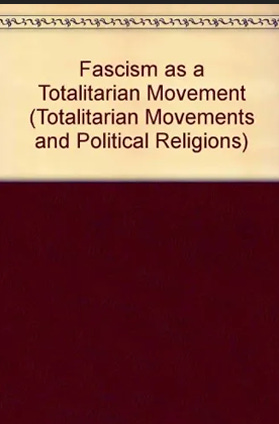



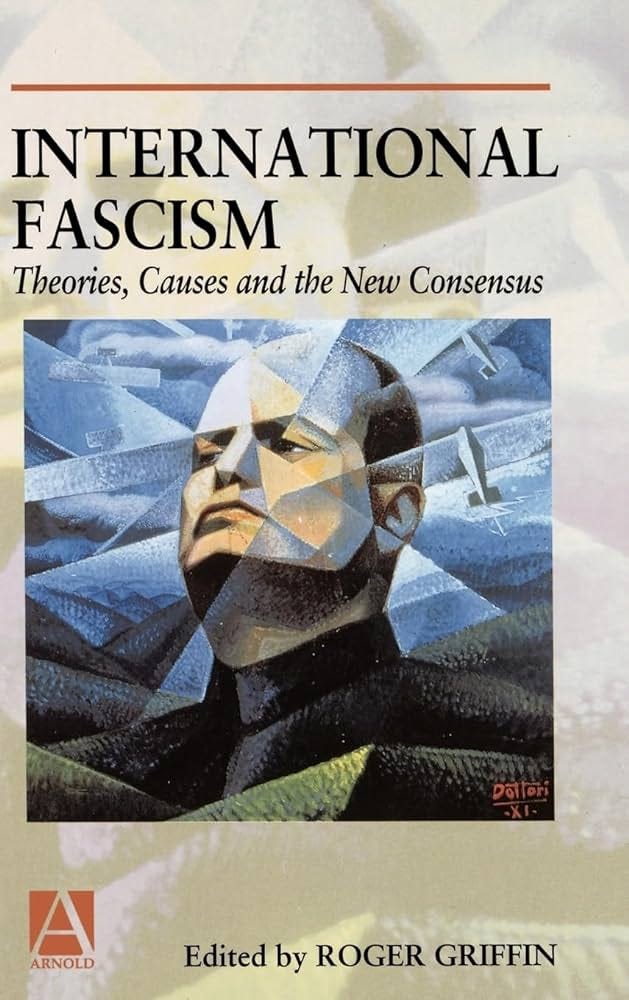





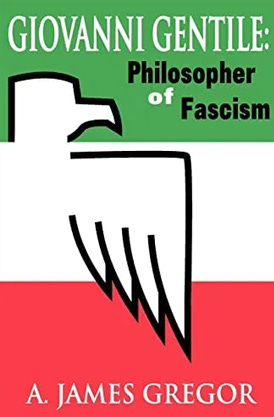
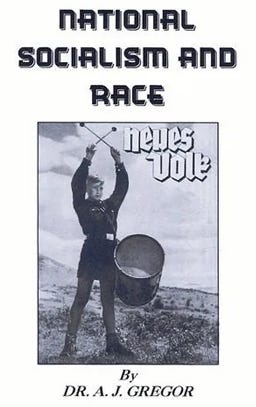


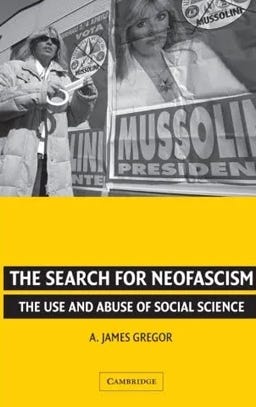















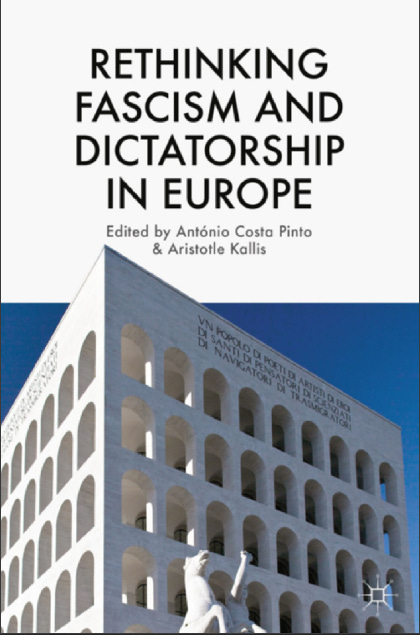
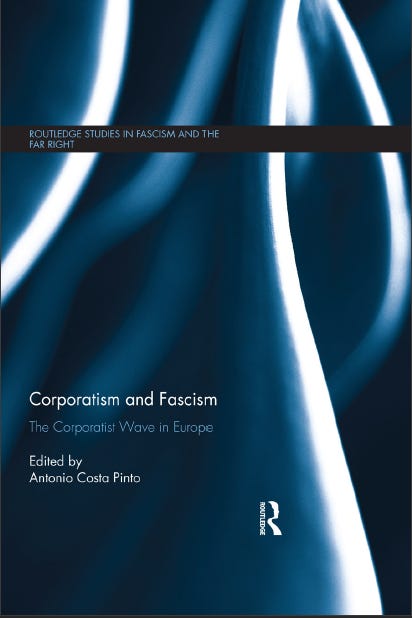


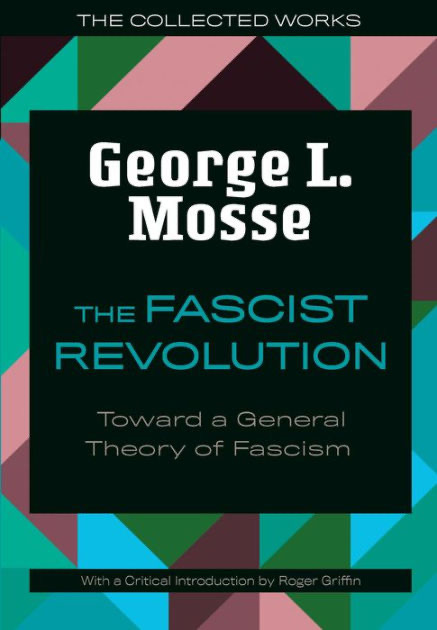










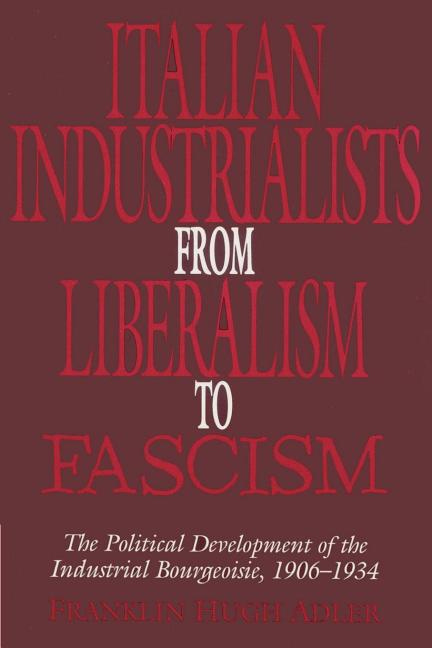





Gem
Excellent resources. A perfect compendium of resources